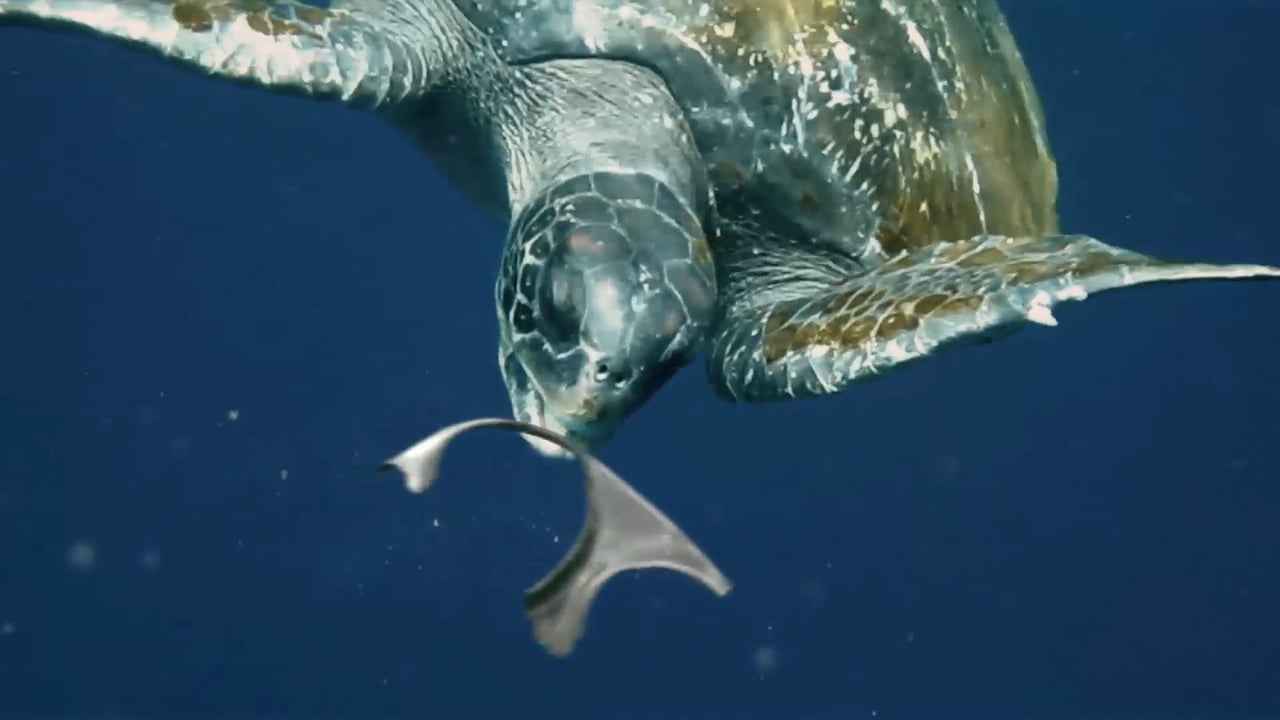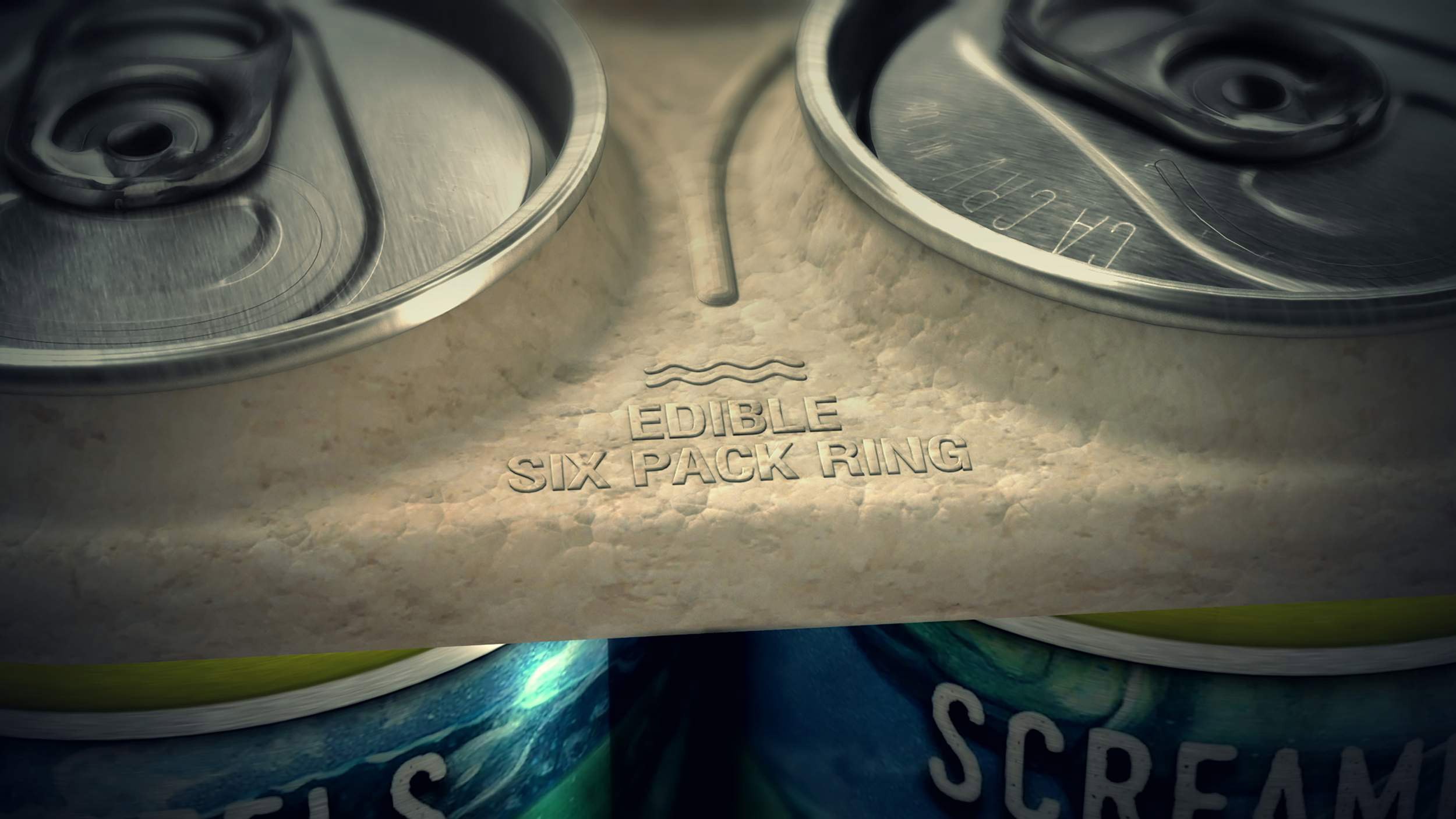- Sustainable Planet -
- 3mins -
- 1,149 views
Edible Six Pack Rings Could Save Countless Marine Animals
One brewery’s edible six-pack rings made from biodegradable brewing byproducts are so safe they’re actually nutritious to marine life!
Biodegradable six-pack rings so safe you can actually eat them
One brewery in Florida has come up with an idea that could save the lives of countless marine animals around the world: biodegradable and edible six-pack rings. Using harmless byproducts from the brewing process that would otherwise be discarded, they came up with this ingenious solution to combat dangerous plastic waste in our oceans.
Completely safe for fish to eat and 100% sustainable and biodegradable
The Saltwater Brewery in Delray Beach, Florida, has come up with an ingenious idea that could save the lives of marine animals around the world: biodegradable and edible six-pack rings.
The public has become all too accustomed to seeing tragic pictures of birds, otters, turtles, and fish stuck in plastic six-pack rings that slowly kill them after getting wrapped around their necks when humans throw them in the ocean or lose them on the beach.
Saltwater Brewery’s new product makes it easy for animals to simply chew them off should they become entangled, or even eat them altogether if the fancy takes them. What’s more, the rings are created from a byproduct of the beer-making process, meaning that they are not only 100% safe for fish to eat, but they are completely sustainable and biodegradable, too. If nothing eats them, they simply dissolve.
As is the case with many environmentally friendly products, the edible six-pack rings are currently more expensive to produce than the plastic they aim tot replace.
Saltwater Brewery is working to add the rings to all of their canned products, and hopefully share the technology with other breweries and drink makers.
Source: Time

The problem with 6-pack rings
6-pack rings, also known as "yokes", are a common and persistent environmental problem that needs to be resolved.
Although only 50 years old, this product can be found nearly everywhere and causes a substantial amount of environmental damage. Although this article refers to them as “6-pack rings”, this product can actually have any number of rings, they are commonly used as packaging for aluminum drink cans, 6-pack rings can be found on many types of products.
A danger to wildlife
Countless birds, turtles, marine mammals, and other wildlife are killed every year by discarded 6-pack rings. Some animals get entangled in the pack. It wraps around their beak or muzzle, preventing them from eating. It tangles up their feet, wings, or fins. Young animals get entrapped and as they grow the 6-pack cuts into their flesh, sometimes amputating limbs or killing the animal.
Other animals mistake the floating object as food and ingest it. Plastic floating on the surface of the water can resemble many edible items. It can look like a jellyfish or a piece of seaweed.
A poor use of scarce resources
Plastic is made from petroleum, and petroleum is a non-renewable resource. That means that once we’ve extracted all we can from the ground, we’re not getting any more. Petroleum is also a scarce resource.
While an individual 6-pack ring doesn’t use much petroleum, millions are produced every year. Even then, it’s not a lot of petroleum consumed when compared to many of the other products we produce. It doesn’t make sense from a sustainability standpoint to take a scarce and valuable resource, make it into a single use product to hold our beer cans together, and then discard it.
Comparatively, 6-pack rings are not a major contributor to environmental pollution and wildlife mortality when other plastic products are far more prevalent and lethal. Cigarette butts, monofilament fishing line, and disposable plastic lighters are bigger dangers than 6-pack rings — but everything counts and this is a threat we can deal with using safe and sustainable technology.
Source: Trashpicker


